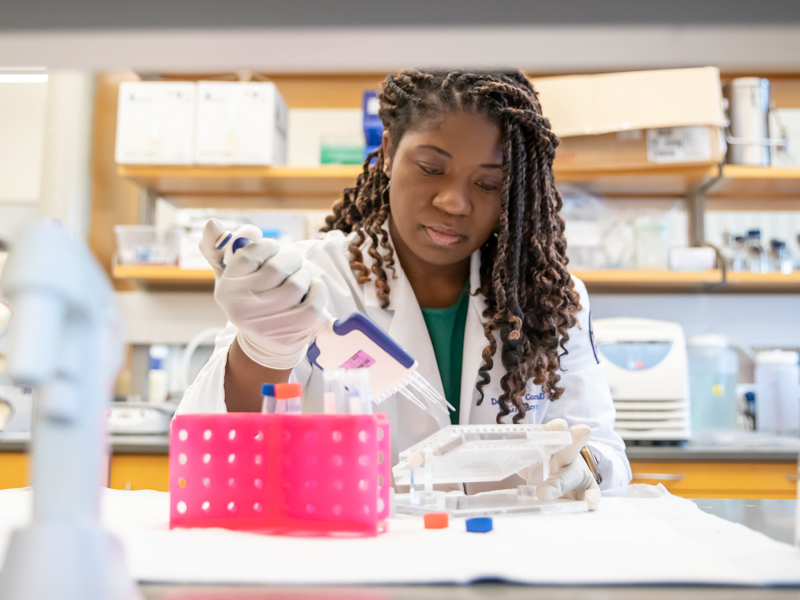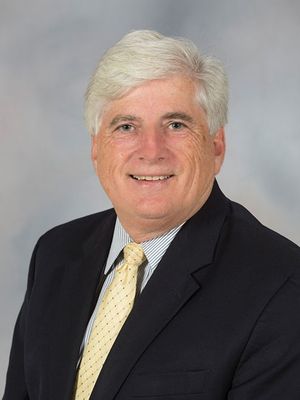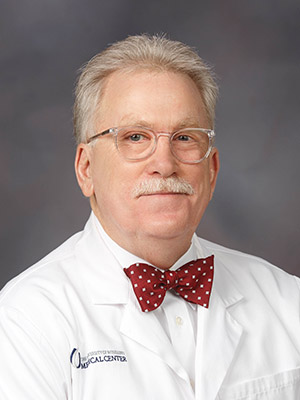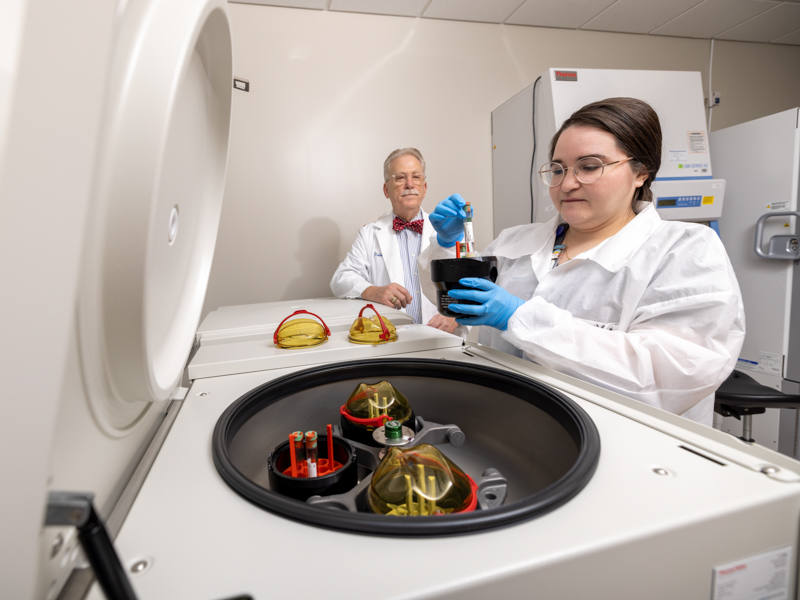UMMC research dollars on upward trend

When Dr. Denise Cornelius was in graduate school, her sister, carrying twins, suffered from severe headaches, vision changes and high blood pressure. Her doctor didn’t know why. But a decade later, when she started experiencing the same symptoms in her second pregnancy, Cornelius, who had by then earned a doctorate in microbiology and immunology from University of Mississippi Medical Center, jumped into action.
“I told her she had preeclampsia and that her doctor should send her to a maternal fetal medicine specialist,” said Cornelius, now director of PreClinical Research and associate professor of emergency medicine, and pharmacology and toxicology.
“I had to remind her of what happened with the twins and sent her back to her OB-GYN to give an adequate medical history, and they realized her high blood pressure was not just gestational hypertension, but was preeclampsia, like I had told her.”
Fortunately, both pregnancies produced healthy babies, though the twins were delivered nine weeks early. The experience, nonetheless, has helped shape and motivate Cornelius’ research.
Funded by the National Institutes of Health, her study on the role of immune dysfunction in preeclampsia, a sometimes fatal complication of pregnancy related to high blood pressure, examines the therapeutic potential of targeting various proteins and cells as treatment strategies.
“We are hoping that our studies will identify ways to treat women with preeclampsia so that their pregnancies can be prolonged and the symptoms and physical damage to their bodies can be inhibited in the short-term and long-term for them and their children,” said Cornelius.
Cornelius’ study is one of 409 projects funded during fiscal year 2022 at the Medical Center, for a total of $107.3 million in grants, awards and contracts. The FY22 spanned July 1, 2021 through June 30, 2022.
The number of funded projects represents an increase from 347 awards in 2020 and 392 in 2021.

Dr. Joey Granger, associate vice chancellor for research and dean of the School of Graduate Studies in the Health Sciences, said though research funding leveled off in June after a $15.1 million Covid-19 grant ended, he remains optimistic.
“I’m excited by the fact we’re on an upward trend and hope this next year we continue,” said Granger, who himself received a five-year $20 million competitive NIH renewal for the Mississippi Center for Clinical and Translational Research.
The MCCTR’s mission is to develop a sustainable research enterprise that impacts public health by reducing obesity and cardiometabolic-related diseases in the state, with an emphasis on supporting young researchers in those fields.
The grant is one of the largest UMMC has ever received, said Granger, who also received $202,000 from the NIH and University of Chicago for a study on luteolin as a treatment for hypertension in pregnancy.
While NIH funding dropped more than 8 percent over the past decade, according to a study by the Association of American Medical Colleges, that has not been the case at UMMC, which received roughly half its grants from NIH.
“I think it speaks highly on the quality of our researchers,” said Granger. “One reason we are seeing an upward trend is our institution over the last decade has put a lot of investments into research, especially in clinical and population research, and it’s starting to pay off.
“We as an institution need to invest in the entire translational research spectrum -- basic, clinical and population research -- if we expect to maintain an upward trajectory of funding. Likewise, our faculty needs to continue increasing the number of grant submissions each year.”

Dr. Gailen Marshall, R. Faser Triplett Sr. M.D. Chair of Allergy and Immunology, was awarded seven multi-year awards in FY22, all underway. They include two studies with Brown University researching the adverse impact of sleep disturbances on the immune responses of inner city children with asthma.
“If we can pick apart the impact of disturbed sleep on the asthma-immune link, this can help us develop new therapeutic strategies that will allow health care providers to determine whether a child needs intervention to repair the disturbed sleep to make asthma better or focus on improving asthma control to help with disturbed sleep,” Marshall said.
Marshall also leads UMMC’s participation in the RECOVER (Researching COVID to Enhance Recovery) study, another NIH-funded project with sites nationwide aimed at determining who is most likely to develop Long COVID, and how to treat and prevent it. UMMC received $566,000 to begin its site.
UMMC’s RECOVER site is still looking for acutely infected survivors of the virus. “Our site is particularly important because of the number of medically underserved, rural patients that we serve who are needed to make this study more diverse and inclusive,” explained Marshall.

Marshall’s other projects include one funded by the National Center for Natural Products Research at Ole Miss investigating effects of the immulina extract on host resilience to viral infections, and two industry grants studying the pharmacokinetics and immune effects of peppermint oil consumed as a dietary supplement. The former could have tremendous health implications in decreasing susceptibility to certain viruses, he said, while the latter will help determine future clinical trials to either treat specific diseases or provide a health-promoting supplement for those at increased risk for certain immune-based diseases.
Marshall, who began his research career almost 50 years ago, said conducting research makes him a better physician because it keeps him up to date on advancements that can directly help his patients.
“It also helps me be a better educator,” he said, “because I love sharing data and new concepts with colleagues and learners alike.”
Funded by the Centers for Disease Control and Prevention since 1996, the Mississippi Cancer Registry, which collects data on newly diagnosed cancers, received a $770,000 renewal in 2022, the first in a five-year grant cycle. The data, published online, are used for aggregate cancer statistics.
Deirdre Rogers, director, said the funding means the staff of 11 can “continue to monitor the burden of cancer in Mississippi and help direct the individuals and organizations in Mississippi to use their limited resources where the burden is highest.”
Granger is already looking ahead to fiscal 2023. “We’ve already gotten significant grants for this new fiscal year. We’re off to a great start.”


